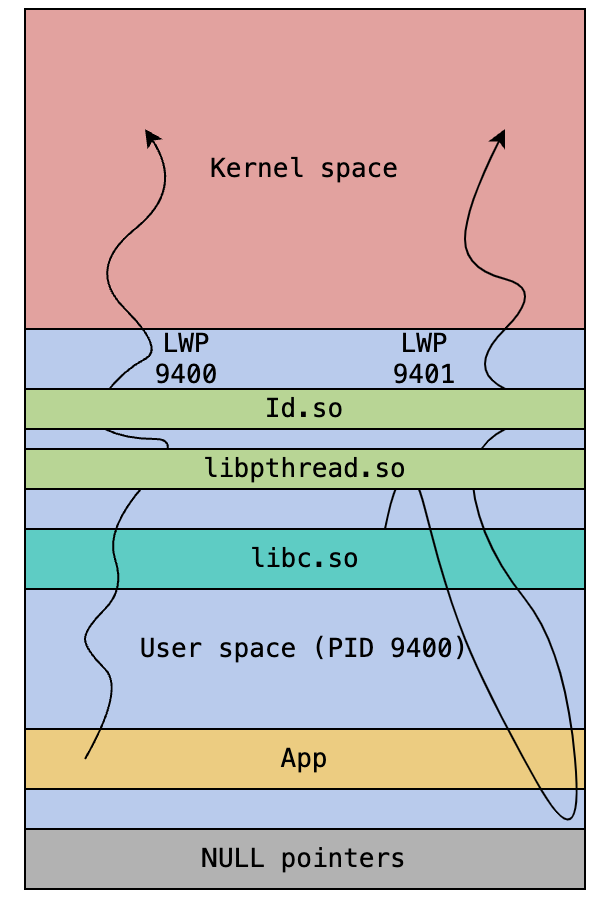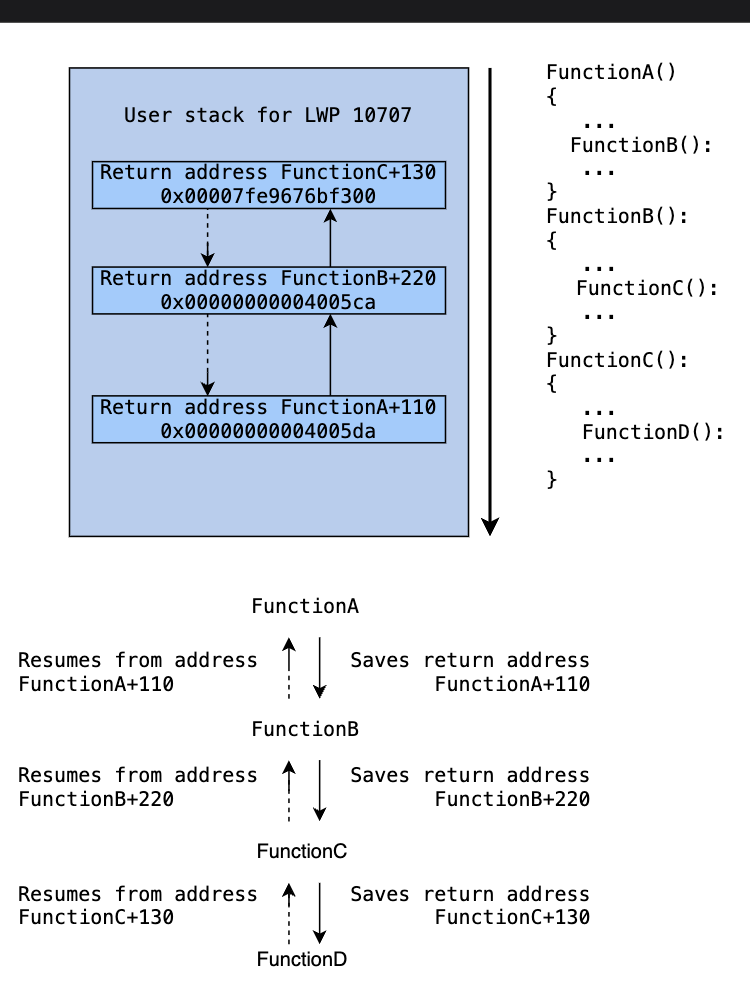operating systems
Tags: computers
- https://dedis.cs.yale.edu/2010/det/
- https://research.cs.wisc.edu/htcondor/description.html
- https://lwn.net/Articles/293575/
- https://www.dragonflybsd.org/cgi/web-man?command=sys_checkpoint§ion=2
- https://www.dragonflybsd.org/cgi/web-man?command=checkpoint§ion=ANY
- http://ithare.com/bringing-architecture-of-operating-systems-to-xxi-century-part-iv-first-draft/
Major Parts
- Isolation between processes
- Mobility (for mobile)
- Security
- Minimizing the overhead
- Syscalls transition the privilage level
- syscalls are like any regular procedure calls, but with a trap instruction
- kernel agrees to put syscalls on well known locations
Trapping and untrapping for syscalls
- Process needs to save the program counter (PC)/instruction pointer (IP) which stores the address of the next instructino to be executed (for resuming)
- Some flags about resuming execution on the CPU state
- All of them get written onto a stack on the kernel side, which then pops back up
Limited Direct Execution
- At boot kernel initializes a trap table
- When running a process, kernel sets up a trap and return of trap to switch back and forth to do syscalls
Forms of Concurrency Bugs
- Atomicity violations
- Order violation
- Classical deadlock bugs
- Conditions for a deadlock
- Mutual exclusion
- Hold and wait
- No preemption
- Circular wait
- Conditions for a deadlock
Threads
-
Similar to a linux process that always run in the same memory
- own instruction pointer, and can be scheduled on different CPU’s and executing different things on the same program
- shares the process structure (execpt stacks)
- linux threads have their own pid
- solaris is completely thread based
- in linux, a thread is a prococess without a thread
- created with the clone() system call
- treat as one process in some games, uses the thread group
getpid()will tell you some info- syn and locks!
- threads tend to be pretty fast, usually an async that does stuff in the background, and never switches off the task running state, spinning is TASK_RUN, but it’s not waiting on IO but rather a lock
- biggest reason to use over a fork is because you can do the same memory
-
linux kernel only uses lightweight processes, or threads.
- Threads use
libcto transition to kernel space, but posix threads originate fromlibcandlibpthread. Note that the kernel only uses LWPs. However, at the kernel layer, since a userspace thread maps to a lwp, it doesn’t really matter

- Threads use
- Debugger commands
- GDB
info threads-> list threadsthread <n>-> switches between threadsthread apply all bt-> backtraces
- LLDB
thread listthread select 1thread backtrace all~/~bt all
- GDB
- Thread stacks
-
each thread has its own stack to store data, and we can dump it like normal
-
Stack tracing a thread is when a function A calls function B, and function B has a return address to where function A called it.

-
- Symbol files
- Symbols provide mappings between memory address ranges and associated symbol names, if you don’t have the symbols, you just have the current function
Concurrent Forward Progress
- If your threads are preemptible, it’s possible that they, while being preempted for another task, might come back to having less resources than before, since the preemption task might take a different amount of resources. How do we fix this?